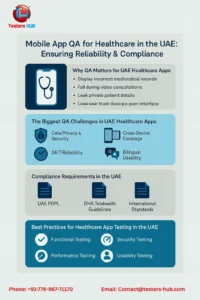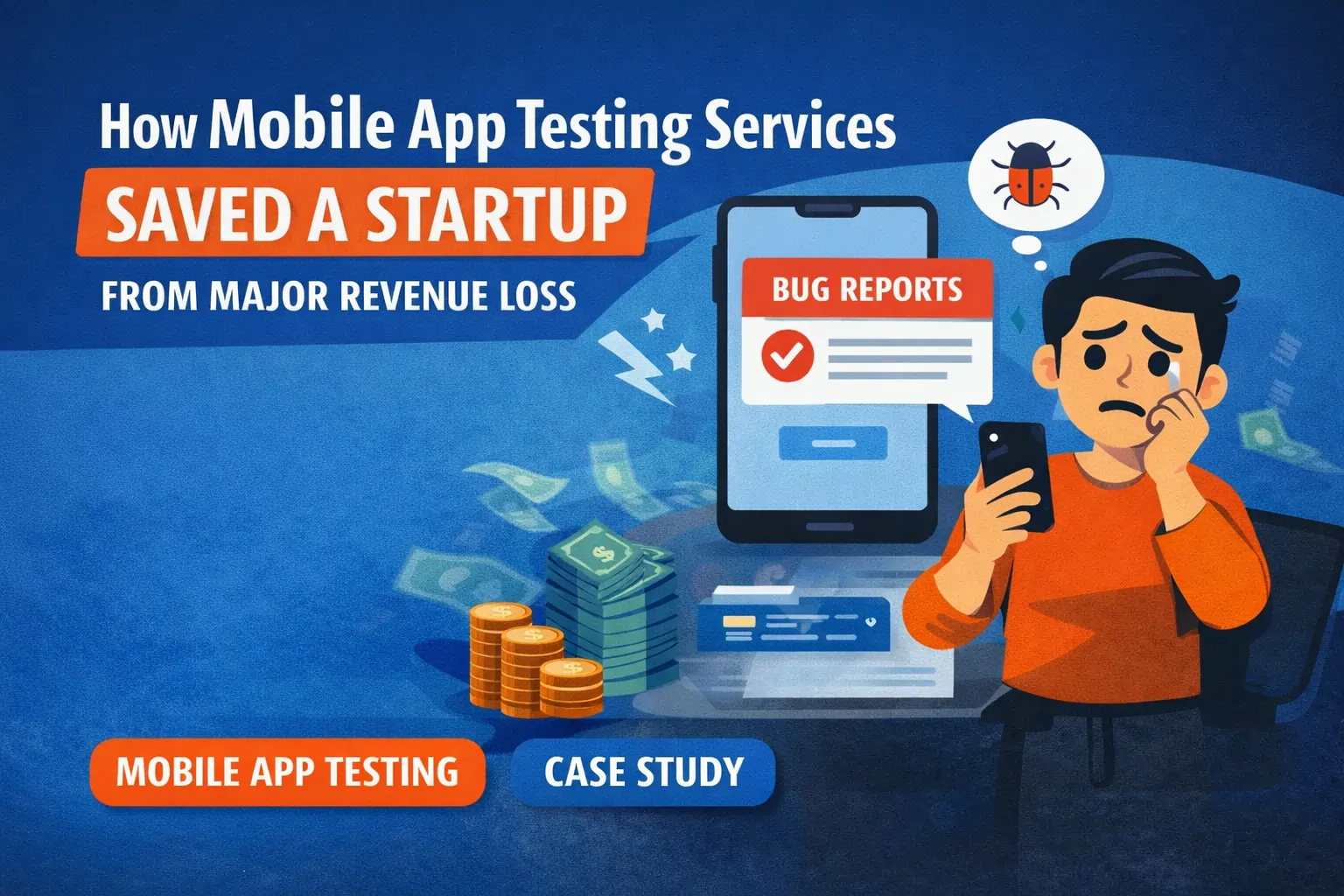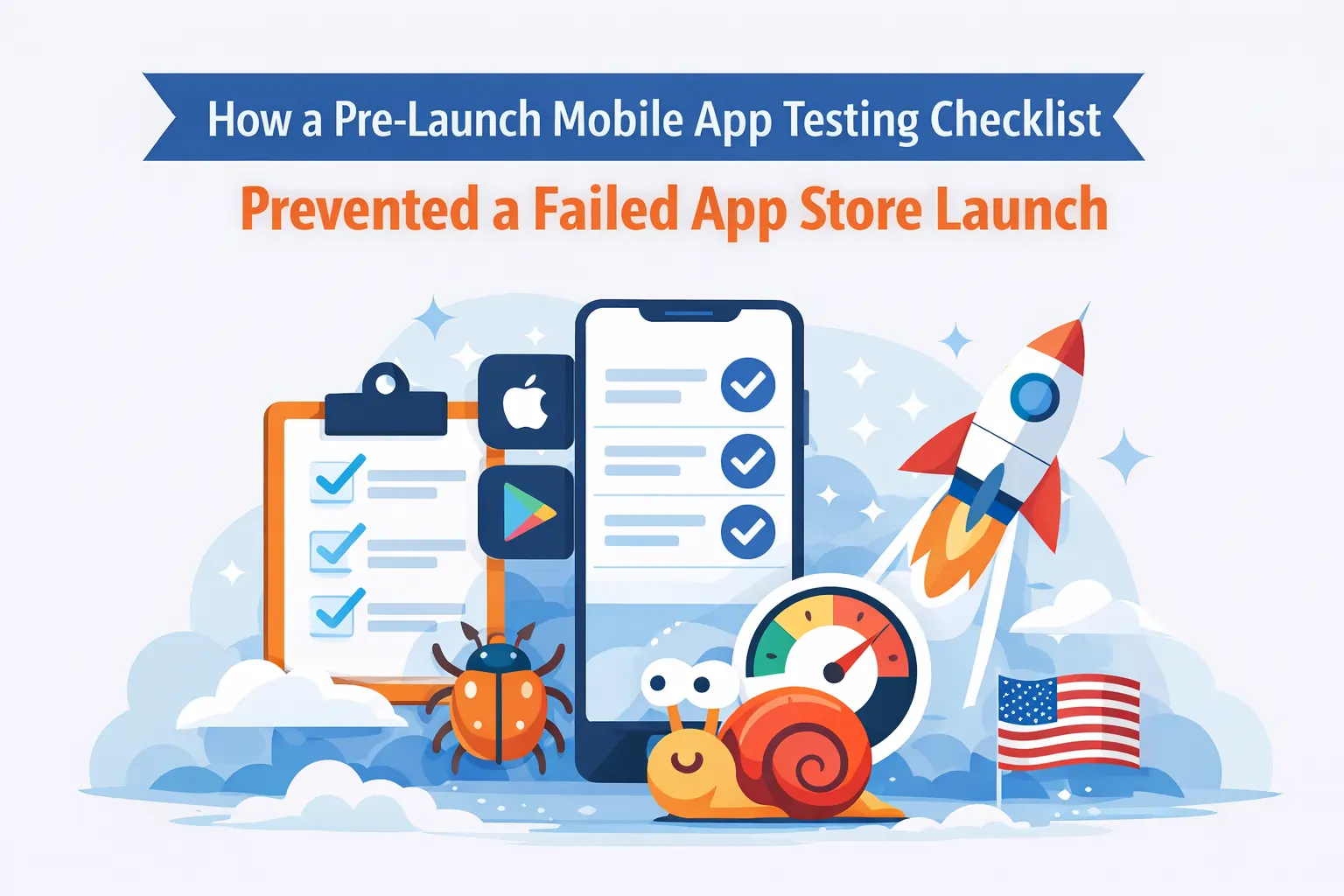Mobile App QA for Healthcare in the UAE: Ensuring Reliability & Compliance
Introduction
Healthcare in the UAE is advancing at lightning speed. Patients and providers now rely on apps for telemedicine, prescriptions, insurance claims, and fitness tracking. However, with this growth comes a challenge—what happens if an app crashes during an emergency or exposes sensitive data?
The solution is clear: mobile app testing services. They ensure apps function reliably, safeguard patient data, and comply with UAE’s strict healthcare regulations. While many use the term mobile app QA, the core goal remains the same—delivering a secure, flawless user experience.

1. Why Healthcare Apps in the UAE Need QA
Healthcare apps are no longer optional tools. In the UAE, they are part of everyday life, connecting doctors, patients, and insurers. Yet, without rigorous QA, these apps can create serious risks.
For instance, an app might:
- Fail during a live video consultation.
- Display incorrect health reports.
- Leak private medical records.
- Confuse patients with poor navigation.
As a result, QA is not just about testing features—it is about protecting patient trust. By investing in the right mobile app testing services, UAE healthcare providers avoid costly mistakes and gain user confidence.
👉 Need expert QA for your healthcare app?
2. Key Challenges in UAE Healthcare App Testing
Testing healthcare apps in the UAE comes with unique challenges. Moreover, each requires a tailored testing approach:
- Data Privacy & Security: Apps must follow the UAE PDPL and international standards for health data protection.
- Always-On Reliability: Since emergencies can happen anytime, downtime is unacceptable.
- Cross-Device Coverage: UAE users rely on iPhones, Samsung, Huawei, and tablets. Each device must be tested.
- Bilingual Usability: Apps must be smooth in both Arabic and English.
- Integration Testing: Healthcare apps often sync with wearables (Apple Watch, Fitbit), hospital systems, and insurance APIs.
In practice, strong mobile app QA processes ensure these challenges are addressed before patients are affected.
3. Compliance Requirements in the UAE
Healthcare apps must operate under strict regulations. In fact, non-compliance can lead to legal action or reputational damage. UAE providers must follow:
- UAE Personal Data Protection Law (PDPL) – protecting patient data.
- Dubai Health Authority (DHA) Telemedicine Guidelines – ensuring safe virtual consultations.
- International Standards (GDPR, HIPAA) – often adopted to reassure global patients.
Therefore, mobile app testing services should always include compliance validation. This protects businesses from penalties and builds trust with users.
4. Best Practices for Healthcare App Testing in the UAE
For healthcare apps to succeed, testing must go beyond the basics. Recommended best practices include:
- Functional Testing: Validate core workflows like appointment booking, prescriptions, and medical records.
- Security Testing: Run penetration and encryption checks to prevent breaches.
- Performance Testing: Simulate heavy traffic during health campaigns or emergencies.
- Usability Testing: Ensure seniors and Arabic-speaking users can navigate easily.
- Automation + Manual Testing: Use automation for regression cycles while keeping manual testing for critical flows.
👉 Ensure your healthcare app is reliable —
5. Case Example: Dubai-Based Fitness App
A Dubai-based fitness tracking app struggled with frequent crashes and poor Arabic localization. Wearable syncing also failed on several devices.
- Approach: Our QA team tested across iPhones, Samsung, and Huawei devices, validated wearable integration, and improved the Arabic UI. Security audits confirmed compliance with PDPL.
- Outcome: Crash rates fell by 40%, sync errors were resolved, and Arabic usability improved significantly.
This shows how mobile app QA and structured testing services can transform user experience and compliance outcomes.
6. Why Partner with an Independent QA Company in the UAE?
Many healthcare providers in the UAE rely on outsourcing rather than in-house QA teams. The reasons are clear:
- Wider Device Coverage – across local and global devices.
- Regulatory Knowledge – healthcare compliance expertise.
- Cost Efficiency – outsourced teams reduce overhead.
- Faster Release Cycles – with structured testing frameworks.
Consequently, outsourcing mobile app testing services helps providers launch faster and with confidence.
👉 Looking for a reliable QA partner in the UAE?
Conclusion
Healthcare apps in the UAE can only succeed if they are secure, reliable, and compliant. Skipping QA risks downtime, non-compliance, and loss of patient trust.
By investing early in mobile app testing services, healthcare providers safeguard both patients and their own reputations. In the end, effective QA builds the foundation for digital healthcare success in the UAE.
FAQ
Q1. Why are testing services critical for UAE healthcare apps?
Because healthcare apps deal with sensitive data, mobile app testing services ensure security, compliance, and reliability.
Q2. Which compliance rules apply in the UAE?
PDPL, DHA telemedicine regulations, and international standards such as GDPR/HIPAA.
Q3. Which devices should healthcare apps be tested on?
iPhones, Samsung Galaxy, Huawei, and tablets are the most common in the UAE.
Q4. How does QA prevent app downtime?
By running performance and load testing to prepare apps for high demand during emergencies.










